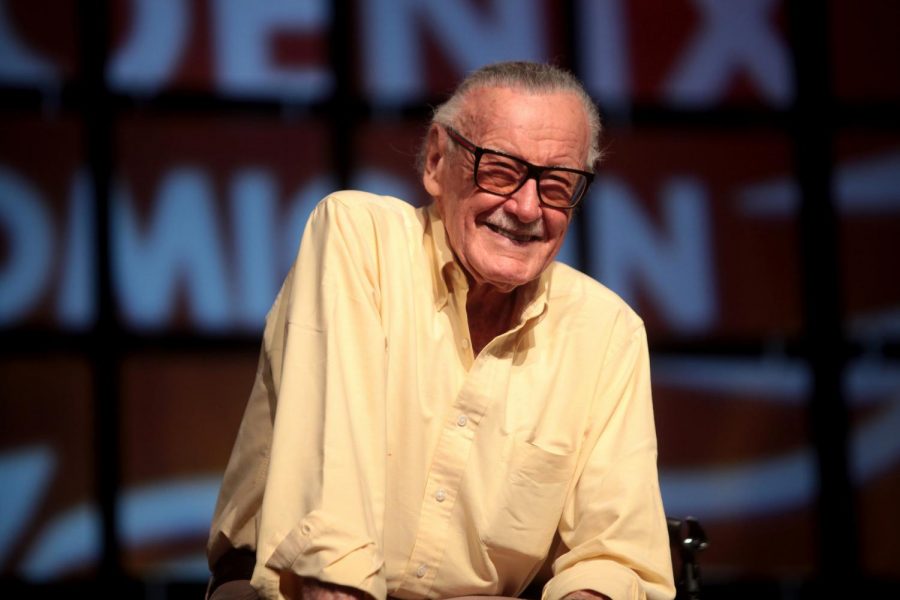Lee’s death impacts Marvel fans
Stan Lee speaks at the 2014 Phoenix Comicon at the Phoenix Convention Center in Phoenix, Arizona. Lee passed away on Monday, leaving Marvel fans forever thankful for his contribution to comics.
Nov 15, 2018
Like any year in history, 2018 has seen a slew of wildly influential men and women pass away: Aretha Franklin, Anthony Bourdain, Stephen Hawking and countless others. On Monday morning, Stan Lee, a man who many credit with reshaping comic books as we know them, took his last breath.
Comics, too-often hailed as lowbrow alternatives to books and novels, have become more socially relevant over the past century; some even become works of great literature in their own right. Despite criticisms of “dumbing down society,” comics have, and continue to be, a reflection of popular culture and societal wants. Ideas of justice, evil and sexuality have been instilled, propagated and changed by these books, sometimes as much as the classic works of literature academia continues to praise. From the post-conventional morality Batman displays as he takes the law of Gotham City into his own hands, Luke Cage’s blaxploitation-era representation, Peter Parker’s nerdy-cool persona, the Sandman’s visually stunning examination of existentialism to Captain Marvel’s valiant efforts to personify strength despite the best efforts of misogynistic writers and artists, comic books have inundated the minds of millions of people, young and old, with fictional figures to look up to and learn from.
It is vital to consider the larger-than-life impact the Marvel Cinematic Universe, perhaps the comic book industry’s most lucrative outlet, has had on popular culture; it changed the definition of “cool.” Brought out of the niche shadows of comic store bookshelves with gargantuan visual effects budgets and high-profile cast members, the MCU transformed a dwindling community of comic book fans into members of the mainstream. Suddenly, it was cool to be a geek. It was cool to be different. It was cool to be obsessed with your favorite superheroes.
By knowing every member of the Avengers, staying for the after-credits cutscene and smiling every time Lee’s cheeky smile made an appearance in the film, one is granted as much cultural capital as being involved in any other aspect of popular culture. Just as their printed counterparts, these movies are now burdened with similar social responsibilities: to display modern and progressive ideas, whether it’s through the groundbreaking representation in a movie like Black Panther, or Wonder Woman’s powerful and self-reliant female lead.
This is the power of comic books.
Get The Daily Illini in your inbox!
To represent, influence and change society through art is no meager task, something often reserved for the most verbose and philosophical literary works — but comic books do so in a way that is accessible to everyone: from the 5-year old forming her ideas of right and wrong through the caped escapades of Superman, to the elderly academic, deciphering the themes of individuality, vigilantism and villainy scattered through “V For Vendetta.”
As the father of modern comic books makes his final cameo, it is important to look back at the cultural legacy he and other artists like him have left, and appreciate the cultural icons comic books have come to and will continue to be, for past, current and future generations. Excelsior!
Agastya is a sophomore in Engineering.






